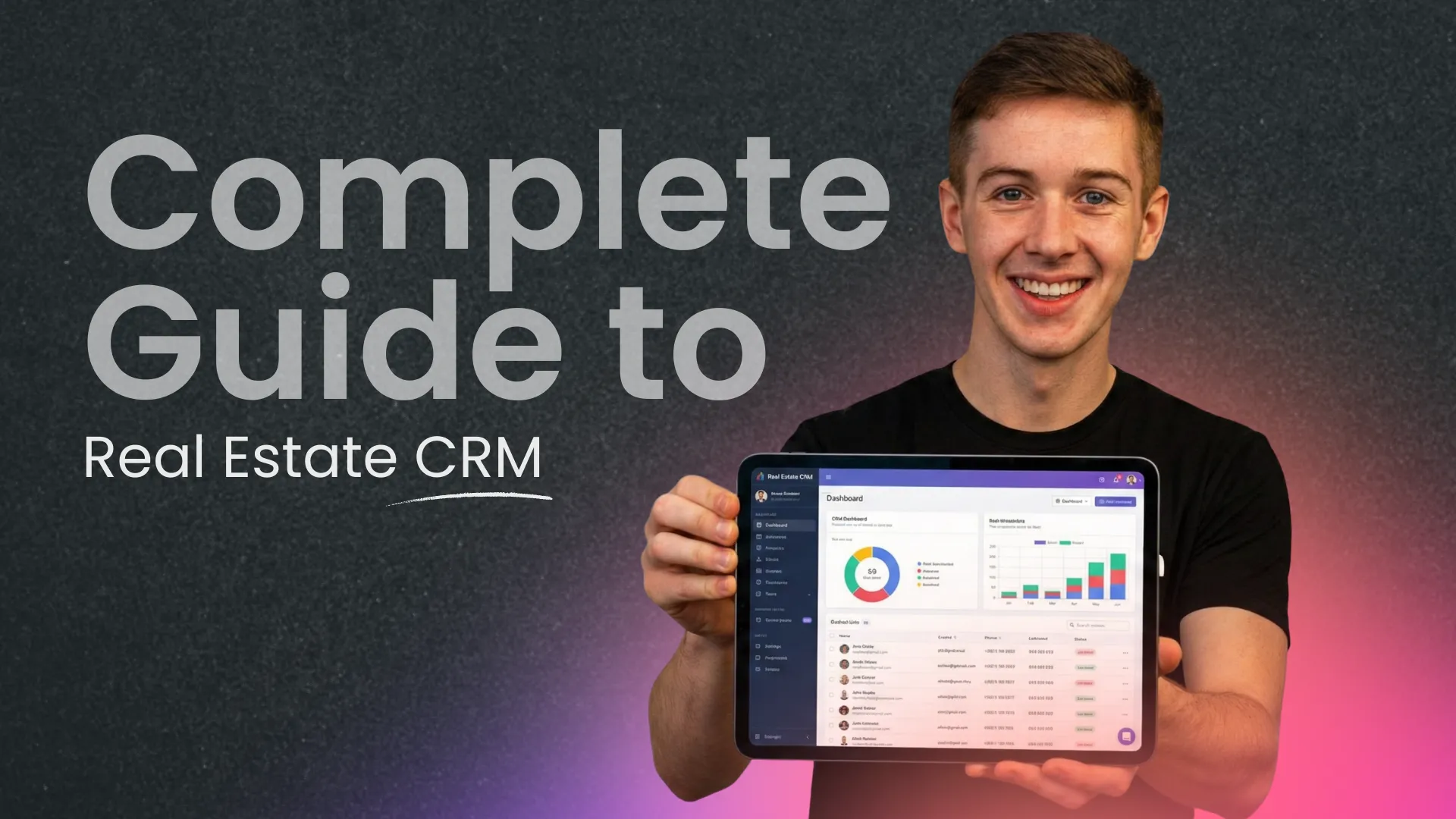
Fitness trainers looking to establish a strong online presence can greatly benefit from AI website builders designed specifically for their industry. These tools simplify the website creation process by using artificial intelligence to generate tailored, professional sites featuring class schedules, trainer profiles, and fitness-related content. AI website builders for fitness trainers enable quick, cost-effective website creation without the need for coding or extensive design skills.
By leveraging templates and automated content generation, trainers and gym owners can focus more on their clients and less on managing their digital footprint. The AI adapts to individual business needs, offering SEO-optimized text and customizable features that highlight expertise and attract potential customers.
Launch Your App Today
Ready to launch? Skip the tech stress. Describe, Build, Launch in three simple steps.
BuildThis technological approach not only saves time but also helps fitness professionals maintain a competitive edge in a crowded market. With fast setup and ongoing support, these AI-powered platforms allow fitness trainers to build credibility and grow their client base efficiently.
What Is an AI Website Builder for Fitness Trainers?
An AI website builder for fitness trainers is a digital tool that uses artificial intelligence to design and create websites without requiring coding skills. It enables fitness professionals to quickly launch an online presence tailored to their services.
These builders use AI algorithms to automate tasks like layout design, content creation, and SEO optimization. This means trainers can have a site that features workout programs, class schedules, and client testimonials with minimal effort.
Many AI website builders offer zero-code needed platforms. This allows fitness trainers—whether personal trainers, gym owners, or nutritionists—to build a site by simply selecting templates or entering key information.
Features often include:
- Automated content generation for blogs or service descriptions
- Customizable design options linked to fitness themes
- Integration with booking or payment systems
Tools like imagine.bo use AI to cater specifically to fitness professionals, supporting easy site creation that highlights their expertise.
In summary, AI website builders streamline the website creation process, allowing fitness trainers to focus more on their clients and less on technical challenges.
Core Features of AI Website Builders for Fitness Professionals
AI website builders for fitness professionals focus on streamlining the creation process while ensuring a polished, functional, and client-oriented site. Key elements include intelligent design automation, adaptable visual frameworks, and intuitive editing tools that enhance efficiency and customization without technical skills.
Automated Website Design
AI-driven platforms generate an AI-created blueprint tailored to fitness trainers, gyms, and coaches. These blueprints include optimized app architecture and user flow, ensuring visitors navigate easily and find relevant content like workout plans, schedules, or service descriptions quickly.
This automation eliminates manual layout tasks by planning and laying out pages instantly. The results are professional-grade websites that look clean and modern. It also accelerates site launch, allowing trainers to focus on their clients rather than technical details.
The AI’s understanding of fitness industry needs means the designs often include sections for testimonials, booking forms, and blogs. This support ensures the website is useful both as a marketing tool and a client engagement platform.
Customizable Fitness Templates
AI website builders come with fitness-specific templates crafted to meet the unique needs of trainers, gyms, and nutrition experts. These templates feature relevant graphics, fonts, and color palettes aligned with fitness branding standards.
Users can customize each template to match their personal style or business branding. Adjustments include layout changes, image swaps, and text edits without disrupting the underlying structure or design integrity.
Because the templates are designed around common fitness workflows, they integrate essential elements such as class schedules, trainer profiles, and nutritional guides. This reduces setup time while maintaining a professional appearance.
User-Friendly Drag-and-Drop Interface
The drag-and-drop interface makes editing accessible for those without coding experience. Fitness professionals can add or rearrange content blocks—like workout videos, client testimonials, or contact forms—with simple clicks and drags.
This low-barrier editing capability allows for quick adjustments to keep the site current, such as updating class times or promotions. The interface usually includes responsive design previews to ensure the site looks good on mobile devices.
Combined with AI guidance, the drag-and-drop tools help maintain logical user flow and consistent visual hierarchy. This means the website not only looks professional but functions smoothly for visitors.
How AI Website Builders Work for Fitness Trainers
AI website builders for fitness trainers simplify the creation of professional, customized websites by breaking down the process into clear, manageable steps. These tools start with understanding the trainer’s unique business, then generate a tailored website blueprint, and finally enable quick construction with minimal input.
Describing Your Fitness Business Idea
The first step involves the trainer clearly describing their fitness business. This includes specifying the type of services offered—such as personal training, group classes, or nutrition coaching—and highlighting target clients, like beginners, athletes, or seniors.
This input guides the AI in recognizing the trainer’s brand identity and goals. The more precise the description, the better AI can tailor the site’s tone, visual style, and functionality to fit the business. Trainers often input keywords, preferred features, and business values here, laying a foundation for the website that aligns with their unique offering.
AI-Driven Blueprint Creation
Once the business idea is captured, the AI engine creates an AI-generated blueprint. This blueprint outlines the site’s structure, including homepage, service pages, blog sections, and booking tools, all tailored to the fitness niche.
The blueprint also includes recommendations for content, SEO strategies, and user flow based on industry best practices. It balances marketing needs with user experience, ensuring visitors can easily find information and engage with the trainer’s offerings. This smart design phase saves time and reduces guesswork, making expert guidance accessible without hiring a professional.
One-Click Build Process
With the blueprint ready, trainers use the one-click build feature to generate their full website instantly. The AI populates pages with designed layouts, optimized content, and relevant images, creating a live, functional site in minutes.
After this, trainers can customize further if desired, adjusting colors, text, and media to suit their preferences. Some platforms also provide expert backup, offering human review or additional support to refine the site and ensure it functions smoothly across devices and browsers. This step removes traditional technical barriers and accelerates launch timelines.
Key Benefits for Fitness Trainers
AI website builders give fitness trainers quick access to professional, secure, and scalable online platforms. These tools remove barriers like coding knowledge and provide infrastructure that supports growing client bases while ensuring compliance with industry security standards.
No Coding Required
Fitness trainers can build complete websites without writing a single line of code. AI-powered platforms use drag-and-drop interfaces and automated design to create layouts tailored for fitness businesses in minutes. This zero-code approach saves time and eliminates the learning curve, letting trainers focus on clients instead of technical details.
The ability to generate SEO-optimized content automatically is often included. This means trainers receive ready-made workout tips, blog posts, or nutrition advice aligned to their audience, reducing the overhead of constant content creation.
Scalable Infrastructure for Growing Clients
AI website builders are hosted on scalable cloud platforms such as AWS, Google Cloud Platform (GCP), or Vercel. This infrastructure ensures websites can handle increased traffic and expanding client engagement without performance issues.
Scalability is essential as fitness trainers increase their online reach or offer live classes, e-commerce, or bookings. Cloud-based hosting with automatic resource management adjusts bandwidth and storage on demand, supporting business growth seamlessly.
Built-In Security and Compliance
Security features integrated into most AI website builders protect client data through encryption and secure login. Many builders comply with recognized standards like GDPR and SOC 2, providing necessary safeguards for trainers handling personal and health information.
Leveraging cloud providers with proven security credentials adds a layer of trust and reliability. This compliance and infrastructure help trainers maintain regulatory requirements without managing complex security setups themselves.
Real-World Use Cases for Personal Trainers and Fitness Businesses
AI website builders are practical tools for fitness professionals, offering tailored features for varying business sizes and client types. Whether managing a solo practice or coordinating a multi-trainer facility, these platforms simplify digital presence, client engagement, and revenue processes.
Solo Trainer Websites
For solo fitness trainers, AI website builders provide an efficient and cost-effective way to create professional, personalized websites. These platforms often include drag-and-drop editors and AI-generated content to help trainers quickly showcase their skills, certifications, and client testimonials.
They can integrate automated scheduling and contact forms to streamline client inquiries and bookings. Additionally, built-in SEO and marketing tools help solo trainers attract local clients with minimal technical knowledge.
Solo makers and founders benefit from customizable templates that emphasize branding. This makes it easier to maintain consistent messaging across social channels and digital platforms.
Multi-Trainer Studio Platforms
Fitness studios with multiple trainers require websites that support diverse offerings and team management. AI website builders for these businesses often include features like trainer profiles, class schedules, and group booking options.
They enable studios to highlight each trainer’s specialties and certifications, making it simple for clients to choose based on goals or preferences. Payment processing systems integrated with membership management help studios handle recurring subscriptions and drop-in fees efficiently.
Small agencies managing multiple client projects can also use these platforms to create and maintain consistent, scalable websites for several trainers or locations, reducing administrative overhead.
Online Class Booking and Payment Solutions
AI-powered scheduling and payment functionalities allow trainers and studios to automate class registrations, cancellations, and client reminders. These features reduce no-shows and improve overall client management.
Payment gateways integrated within the website facilitate secure transactions for individual sessions, packages, or memberships. Trainers can set up various pricing plans and promotions without extra software.
Such solutions support multiple client projects by keeping financial and scheduling data centralized, which is essential for trainers offering both in-person and virtual classes. This integration streamlines administrative tasks so trainers can focus on client results.
Integrated Tools and Analytics for Fitness Websites
Effective fitness websites incorporate tools that streamline operations and enhance client engagement. Key features often include scheduling automation, tracking systems for client progress, and comprehensive analytics dashboards to monitor website and business performance.
Automated Scheduling Integrations
Automated scheduling systems connect directly with a trainer’s calendar to manage bookings without manual input. These integrations often sync with popular calendar apps like Google Calendar or Outlook, reducing scheduling conflicts and no-shows.
Clients can select available time slots, receive instant confirmations, and get reminders via email or SMS. This system also allows fitness trainers to set buffer times between sessions and manage group class bookings efficiently.
Automated scheduling improves workflow by minimizing administrative tasks, enabling trainers to focus more on coaching rather than managing appointments.
Client Progress Tracking
Client progress tracking tools help trainers monitor workout routines, nutrition plans, and fitness goals in a centralized location. These platforms often allow input of metrics like weight, body measurements, and workout performance.
Progress can be visualized through charts and timelines, providing both trainer and client a clear picture of improvement areas and milestones achieved.
Some solutions integrate with fitness trackers and apps, automatically updating data to keep records accurate and current. This fosters accountability and motivation by making progress transparent and measurable.
Analytics Dashboards
Analytics dashboards offer detailed insights into website traffic, user behavior, and engagement metrics. They track key performance indicators such as visitor numbers, session duration, and conversion rates for lead capture forms.
Advanced dashboards may include client demographics, popular content, and sales trends, helping trainers tailor marketing strategies and improve user experience.
These dashboards typically present data visually through graphs and tables, making complex information easy to interpret quickly. Continuous monitoring enables data-driven decisions to optimize website effectiveness and business growth.
Getting Started with AI Website Builders
Starting with an AI website builder involves careful planning and understanding the options available to fitness trainers. Early access opportunities, clear goal setting, and knowing when to upgrade ensure a smooth launch of a professional online presence.
Joining Beta Waitlists
Many AI website builders offer private beta access to test new features before a full release. Fitness trainers should join these waitlists early to take advantage of free access periods, such as betas free until August 2025. Being on a beta waitlist allows users to explore the builder’s tools, provide feedback, and influence development.
Waitlists often fill quickly, so signing up promptly is critical. Beta participants can use core features without cost, but should expect occasional bugs or limited support. This phase helps trainers familiarize themselves with the platform’s interface and capabilities while avoiding upfront fees.
Outlining Your Vision
Before building a site, the trainer must clearly define the website’s purpose and key elements. This includes deciding on essential pages like schedules, services, client testimonials, and blog content. Outlining the vision helps tailor AI-generated content and design consistent with the trainer’s brand and audience.
She should gather existing materials such as logos, images, and program descriptions to upload. Defining the site’s tone, color scheme, and functionality needs ensures the AI builder creates a cohesive, professional look. A well-planned outline reduces later revisions and enhances SEO effectiveness.
Transitioning to Paid Plans
Once the beta phase ends, moving to paid plans usually unlocks advanced features like custom domains, e-commerce capabilities, and enhanced support. Fitness trainers need to review pricing structures carefully to select plans fitting their budget and growth strategy.
Clear pricing details should be evaluated, including monthly fees, feature tiers, and cancellation policies. Upgrading should align with increased business demands, such as online booking or marketing integrations. Payment plans often offer scalability, so trainers can expand website functionality as their client base grows.
Expert Support and Community Resources
AI website builders for fitness trainers often provide comprehensive support systems and community tools. These help users resolve technical issues quickly, tap into advanced expertise, and engage with peers for shared growth and problem-solving.
Professional Guidance for Troubleshooting
Users gain access to professional support teams specialized in AI website builders for fitness professionals. These teams address a wide range of technical challenges, from layout customizations to AI content generation problems.
Support is typically available through multiple channels such as live chat, email, and phone. This prompt assistance reduces downtime and ensures websites remain functional and optimized.
Many platforms also offer detailed tutorials and FAQs. These resources help fitness trainers troubleshoot common issues independently, speeding up resolution.
Access to Senior Engineering Backup
When complex problems arise, senior engineers provide deeper technical expertise beyond standard support. Their involvement is crucial for issues related to AI algorithms, security, and server scalability.
Senior engineers analyze code-level concerns and performance bottlenecks. They ensure the AI-driven tools operate efficiently on cloud infrastructure such as Google Cloud.
This escalation process usually follows initial troubleshooting by regular support staff, guaranteeing advanced problems receive the necessary attention from highly experienced professionals.
Knowledge Hubs and Peer Communities
Fitness trainers benefit from dedicated knowledge hubs filled with articles, video guides, and case studies focused on AI website building.
Additionally, peer communities create spaces for users to exchange tips, share successful strategies, and network. These forums often include groups of personal trainers, gym owners, and fitness center managers.
Participation in such communities fosters collaboration and growth. Members can ask questions, provide feedback, and stay updated on the latest features and best practices for their AI-powered sites.
Comparing Top AI Website Builders for Fitness Trainers
AI website builders designed for fitness trainers offer a range of features, pricing options, and usability tailored to the specific needs of this niche. Evaluating key functions, costs, and benefits helps fitness professionals choose tools that align with their business requirements and technical skills.
Essential Features to Compare
Fitness trainers need AI builders with fitness-specific templates, easy content management, and built-in marketing tools. Platforms like Duda and Appy Pie provide templates tailored to personal training and gyms, allowing quick branding and custom layout without coding.
AI integration for automated design suggestions and SEO optimization is vital. Features such as drag-and-drop editors, appointment booking, and client management enhance usability. Some builders, including imagine.bo, focus on AI-driven personalization to boost website engagement.
Mobile responsiveness and integration with social media or fitness apps are also critical. Fitness trainers benefit from AI tools that optimize loading speed and user experience on smartphones, reflecting active client lifestyles.
Pricing Models and Trials
Pricing varies significantly across AI website builders. Many, including imagine.bo, offer tiered subscriptions with basic plans that include essential features but limit bandwidth or storage. Clear pricing transparency is important for fitness trainers balancing cost and needs.
Free trials or money-back guarantees allow users to test functionality risk-free. Plans often scale from $10 to $40 monthly, depending on the number of pages, e-commerce options, or additional AI tools like marketing automation. Some platforms include free SSL certificates and bandwidth in all plans.
Choosing a pricing model depends on expected website traffic and needed features like customized domains or integrations with payment systems for online training sessions.
Pros and Cons for Fitness Businesses
AI builders for fitness differ in ease of use and customization. Platforms like Duda offer fitness-specific templates but may have a steeper learning curve for beginners. Appy Pie emphasizes simplicity with drag-and-drop and fast AI setup but may lack advanced customization.
Some builders prioritize marketing tools beneficial for fitness professionals aiming to attract clients through social media campaigns. However, limited control over design elements can restrict branding opportunities.
On the downside, some AI-powered platforms may generate generic layouts or require ongoing subscriptions for critical features. Fitness trainers with technical skills may prefer platforms that balance AI assistance with manual control.
Comparing these builders in terms of support, scalability, and AI sophistication helps businesses avoid overspending and ensures the site meets specific fitness client needs.
Future Trends in AI-Driven Website Creation for Fitness
AI-driven website builders are evolving rapidly to meet the specific needs of fitness professionals. New technologies will enhance customization, user engagement, and scalability, allowing trainers to move beyond basic sites to fully functional digital platforms.
Emerging Technologies
AI tools are integrating advanced design automation, personalized content generation, and real-time user behavior analysis. These technologies enable fitness trainers to create dynamic landing pages that adapt based on visitor interactions, improving conversion rates without the need for coding skills.
Chatbots powered by AI will handle customer inquiries and bookings, providing immediate support 24/7. Additionally, AI-powered SEO optimization tools will automatically improve search rankings, helping fitness websites gain visibility with minimal manual effort.
Fitness-focused AI builders are also incorporating video integration and workout scheduling features, leveraging machine learning to suggest optimal layouts and content based on trending fitness industry practices.
Predicted Industry Changes
The fitness industry will see a shift from static promotional websites to interactive online hubs. AI will enable trainers to offer personalized workout plans, nutrition advice, and member management tools directly through their websites.
With increasing AI adoption, fitness businesses will require websites that integrate seamless e-commerce for class bookings and merchandise sales. This calls for AI platforms capable of supporting payment systems and customer relationship management within a single interface.
More trainers will rely on AI to analyze user data and adapt marketing strategies in real time, increasing engagement and retention. The use of AI also reduces dependency on external web developers, speeding up the launch of professional, scalable MVPs that can grow with the business.
Scalability Beyond MVPs
AI website builders will increasingly support the transition from minimum viable products (MVPs) to fully scalable digital platforms. Early-stage fitness trainers can launch simple, functional sites quickly, then add advanced features such as member portals, analytics dashboards, and personalized content as their brand grows.
The ability to scale without rebuilding the entire site saves time and costs. AI will automate much of the scaling process, including server resource allocation and front-end adjustments, allowing for smooth handling of larger traffic and more complex functionality.
These scalable AI tools ensure that fitness professionals can maintain a professional online presence that evolves with market demands, avoiding common pitfalls of outgrowing their initial website solutions.
Launch Your App Today
Ready to launch? Skip the tech stress. Describe, Build, Launch in three simple steps.
Build





